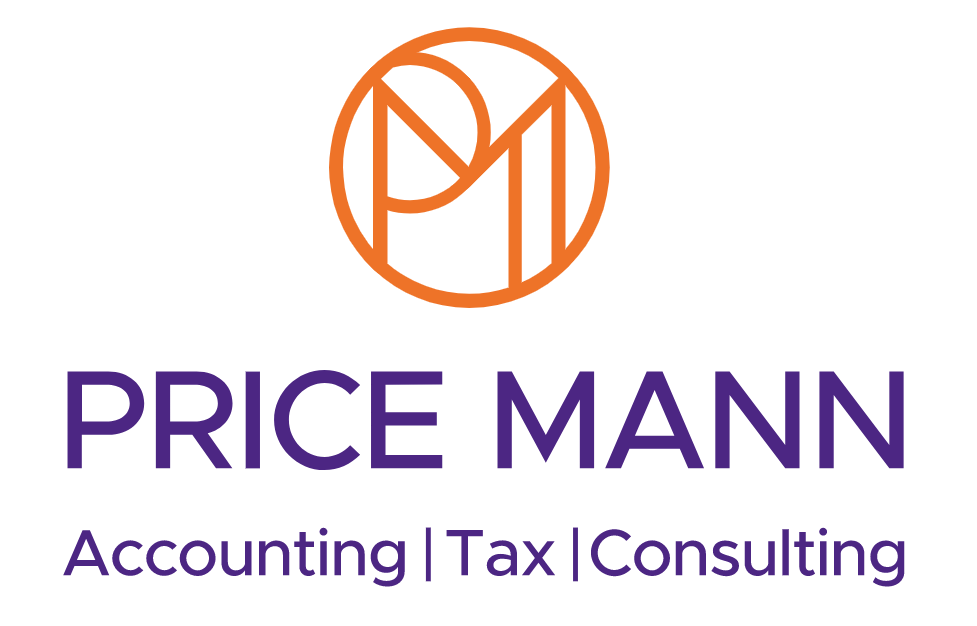The ABCs of VAT for a small business owners
The ABCs of VAT for small business owners
Your guide to understanding VAT
Value Added Tax (VAT) is a significant part of the UK tax system. If you run a VAT-registered business, you’re required to charge this tax on most goods and services, which you must then report and pay to HMRC. Basically, you are collecting VAT on the Government’s behalf.
While this may sound straightforward at first, VAT is known for being complicated, and many small business owners find it difficult to get right. The purpose of this guide is to simplify the VAT process for business owners and provide clear, easy-to-understand instructions for managing VAT responsibilities effectively.
The VAT basics
Whenever a product or service is subject to VAT, the individual or business selling that product or service must charge the customer VAT, and then pass that onto HMRC. The seller can also recover any VAT that they had to pay in delivering that product or service (for example, on materials).
Understanding VAT
Understanding VAT is crucial for SMEs for several reasons:
- Compliance with tax laws: Failure to understand and properly handle your VAT obligations can lead to legal issues, including non-compliance penalties. As a result, it’s vital to know when you’re required to register for VAT, how to file VAT returns, and how to reclaim VAT you’ve paid on business-related goods and services.
- Cashflow management: VAT can significantly affect your SME’s bank balance. Knowing how to manage VAT effectively can help businesses maintain a healthy cashflow. There are different schemes available and picking the correct one can significantly improve cashflow.
- Pricing: VAT-registered businesses need to understand how much VAT to charge on their products or services.
- VAT thresholds and schemes: Learning about the different VAT schemes available to your business can help simplify the process.
- International trade: If your business is involved in importing or exporting goods and services, understanding VAT is vital for international trade compliance.
- Claiming VAT back: VAT-registered firms can recover VAT on many costs associated with running their business, which can reduce overall expenses.
- Record-keeping and reporting: Proper record-keeping and timely VAT reporting are essential. SMEs must keep accurate records of all VAT-charged sales and purchases and file regular VAT returns using software compatible with Making Tax Digital (MTD)for VAT. Failure to do so can result in fines and complications with HMRC.
Making Tax Digital (MTD)
MTD for VAT was introduced in 2019 to make it easier for businesses to get their VAT right and keep on top of their affairs. All VAT-registered businesses are now required to comply with these rules.
Under MTD for VAT, businesses and individuals are required to use HMRC-approved digital software to keep track of their tax records. Tax returns are submitted to HMRC using compatible software instead of filling out paper forms or even using the older VAT return portal online.
VAT registration
Threshold for registration
The current VAT registration threshold in the UK is £85,000. When a business’s taxable turnover reaches or exceeds this threshold within a 12-month period, it must register for VAT with HMRC. You’re also required to register if your business is likely to pass the threshold within the next 30 days. Once registered, the business must fulfil new responsibilities, including:
- charging VAT on certain products and services
- submitting VAT returns on a regular basis (usually quarterly)
- paying HMRC any VAT owed
- keeping detailed VAT records.
The VAT threshold is currently frozen at £85,000 until March 2026, which could mean more businesses will find themselves reaching the threshold sooner.
Voluntary registration
Businesses register for VAT voluntarily even if their turnover is below this threshold. Voluntary registration can be beneficial in certain circumstances, such as when a business’s customers are predominantly VAT-registered themselves or if the business is often in a refund position with HMRC.
How to register for VAT
Businesses registering for VAT can do so through the HMRC website. Here’s a brief overview of the steps involved:
- Preparation: Before starting the registration process, ensure you have all the necessary information ready. This includes details about your business such as its turnover, bank account details, and contact information. We’d also recommend signing up for MTD-compatible software ahead of time.
- Online registration: You’ll need to register for VAT through HMRC’s online service. If you don’t already have a Government Gateway account, you’ll need to create one as part of the process.
- After you register: Once the registration is complete, HMRC will provide you with a VAT number and information about how to submit your first VAT return. They’ll also confirm your registration date, and you’ll be signed up for MTD for VAT automatically.
- VAT returns and record-keeping: After registration, businesses are required to submit VAT returns, usually quarterly, and maintain detailed records of sales and purchases using HMRC-approved accounting software.
VAT rates and categories
Different VAT rates apply to various goods and services:
Standard rate
The standard rate of VAT is currently set at 20%. This default rate applies to most goods and services provided in the UK, including consumer electronics, alcoholic drinks, and other general goods and services. This is the default rate unless a specific item is designated under another category.
Reduced rate
Goods and services considered essential or beneficial from a social policy perspective are taxed at a reduced rate of 5%. This includes domestic fuel and power, children’s car seats and the installation of energy-saving materials.
Zero rate
Zero-rated items are still subject to VAT but at a rate of 0%. This category includes most food items, books, newspapers, children’s clothing, and shoes.
Exempt and outside the scope
VAT-exempt items are not subject to VAT and include insurance, providing credit, and certain types of education and training services. Goods and services outside the scope of VAT include MOT tests, postage stamps, and health services provided by doctors. These items are distinct from zero-rated goods in that they are not part of the VAT system at all.
The difference between selling a zero-rated product and an exempt product is that for a zero-rated product you can still reclaim the VAT you were charged in relation to the sale.
Understanding which category a product or service falls into is essential for accurate VAT accounting and compliance.
VAT accounting
Many small businesses can sign up for VAT accounting schemes to simplify the VAT process and help them manage their finances. Here are some of the main schemes:
- Flat rate scheme: This scheme simplifies record-keeping by allowing businesses to pay a fixed rate of VAT to HMRC. It’s suitable for VAT-registered businesses with an annual taxable turnover of £150,000 or less (excluding VAT). The VAT percentage paid depends on the business type.
- Cash accounting scheme: Under the cash accounting scheme, VAT is accounted for when payment is actually received from customers, rather than when invoices are issued. This can improve cashflow, as you won’t need to pay your VAT bill until your business has received the money. This scheme is available for businesses with a turnover of up to £1.35 million. It’s particularly beneficial for those that have slow-paying customers or cashflow management problems.
- Annual accounting scheme: The annual accounting scheme allows businesses with an annual turnover under £1.35m to submit one VAT return per year instead of four, simplifying administration. The scheme requires businesses to make advance payments based on their estimated VAT liability, with a final balancing payment due two months after the end of the VAT year.
How an accountant can help
Handling VAT effectively is vital for the smooth operation of a small enterprise. Here’s why you should consider hiring an accountant to assist you:
- Expertise and knowledge: Accountants have specialist knowledge and stay updated on the latest tax laws and regulations. This expertise is crucial for navigating the complexities of VAT, including understanding different rates and the implications for your business.
- Time and efficiency: VAT accounting can be time-consuming. An accountant can handle these tasks efficiently, allowing you to focus on other critical aspects of your business.
- Compliance and accuracy: Ensuring compliance with VAT regulations is essential to avoid penalties and fines. As accountants, we can ensure that VAT returns are accurate and submitted on time, reducing the risk of errors and compliance issues.
- Strategic planning: Accountants can provide guidance on which VAT scheme to choose and help develop strategies to optimise cashflow and reduce tax liabilities.
- Handling audits and enquiries: A VAT expert can handle communications with HMRC and resolve potential issues effectively.
- Advisory on transactions and growth: As your business evolves, an accountant can advise on the VAT implications of business transactions, international trade, or expansion activities.
As VAT accountants, we can support your small business by saving you time and stress managing your VAT obligations. It’s our job to ensure that you always comply with MTD for VAT rules, and we’ll provide strategic advice to ensure you pay the right amount of VAT – no more, no less.
Have any questions or need assistance? Feel free to reach out to us.













